Aiyana-Lee Is On a High
The singer-songwriter discusses making her film debut and writing the title track for Spike Lee’s new movie 'Highest 2 Lowest.'
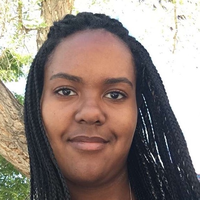
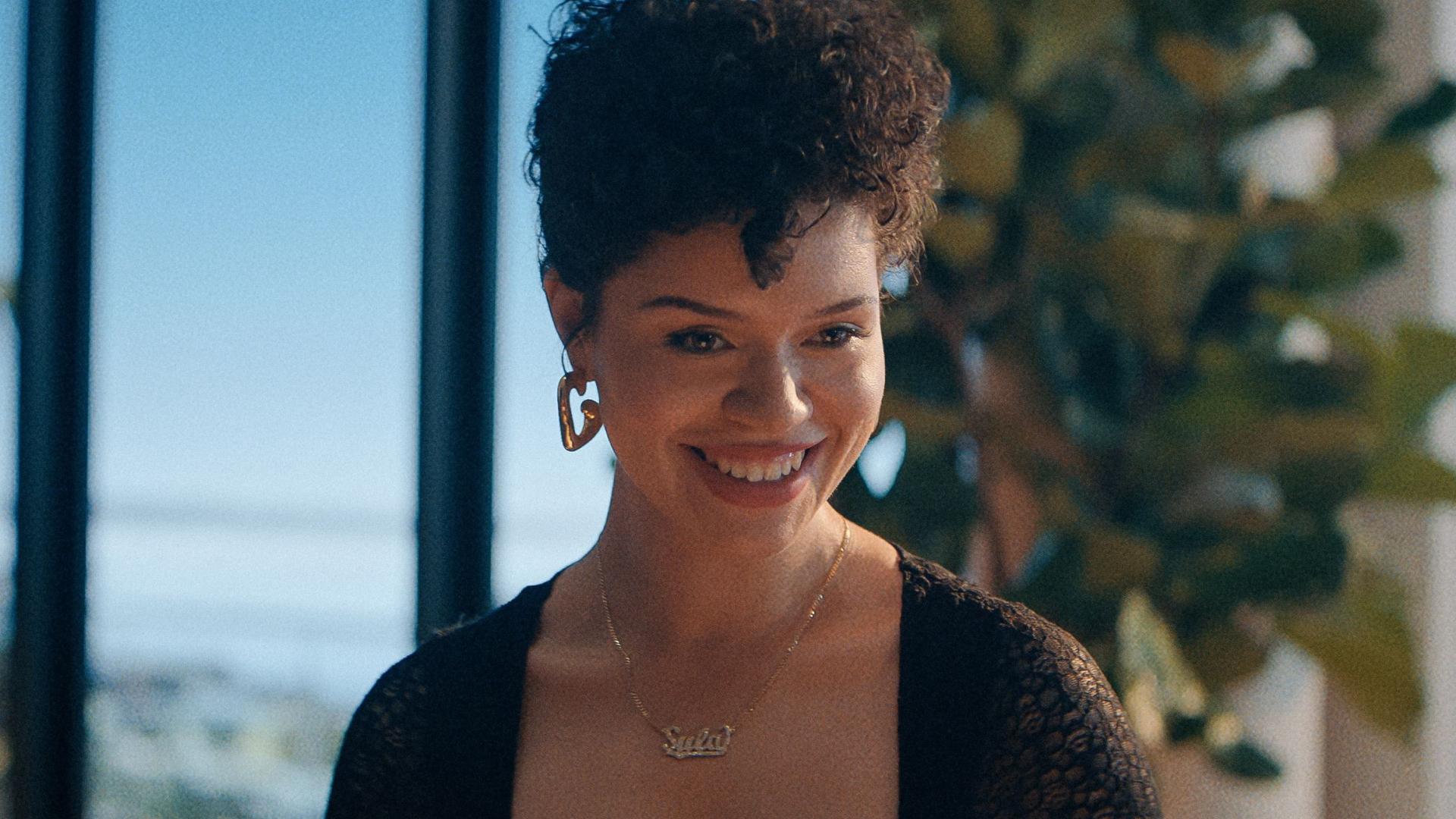
Select the newsletters you’d like to receive. Then, add your email to sign up.
You are now subscribed
Your newsletter sign-up was successful
Want to add more newsletters?

Delivered daily
Marie Claire Daily
Get exclusive access to fashion and beauty trends, hot-off-the-press celebrity news, and more.

Sent weekly on Saturday
Marie Claire Self Checkout
Exclusive access to expert shopping and styling advice from Nikki Ogunnaike, Marie Claire's editor-in-chief.

Once a week
Maire Claire Face Forward
Insider tips and recommendations for skin, hair, makeup, nails and more from Hannah Baxter, Marie Claire's beauty director.

Once a week
Livingetc
Your shortcut to the now and the next in contemporary home decoration, from designing a fashion-forward kitchen to decoding color schemes, and the latest interiors trends.

Delivered Daily
Homes & Gardens
The ultimate interior design resource from the world's leading experts - discover inspiring decorating ideas, color scheming know-how, garden inspiration and shopping expertise.
Spike Lee’s latest film Highest 2 Lowest stars Denzel Washington as David King, a renowned music mogul whose biggest days may be behind him. Still, his legendary ear inspires up-and-coming artists to track him down and attempt to capture his attention with acoustic serenades in the lobby of his label’s offices.
One of the film’s breakout stars, singer-songwriter Aiyana-Lee, got her start in the industry in the exact same way. “That was me in every label,” the 24-year-old musician says. “I was sitting outside, pretending I had a meeting, waiting for the CEO, literally with a guitar and a karaoke mic. It made the film feel hyper-realistic.”
Now, the British-American artist (whose full name is Aiyana-Lee Anderson) has traded her makeshift impromptu stage for the theatrical spotlight. In Highest 2 Lowest, she plays Sula Janie Zimmie, another aspiring superstar who appears in King’s life as he contemplates the next stage of his career. Sula’s sanctioned audition in the film’s momentous ending scene leaves King—and the audience—moved by the singer’s undeniable talent.
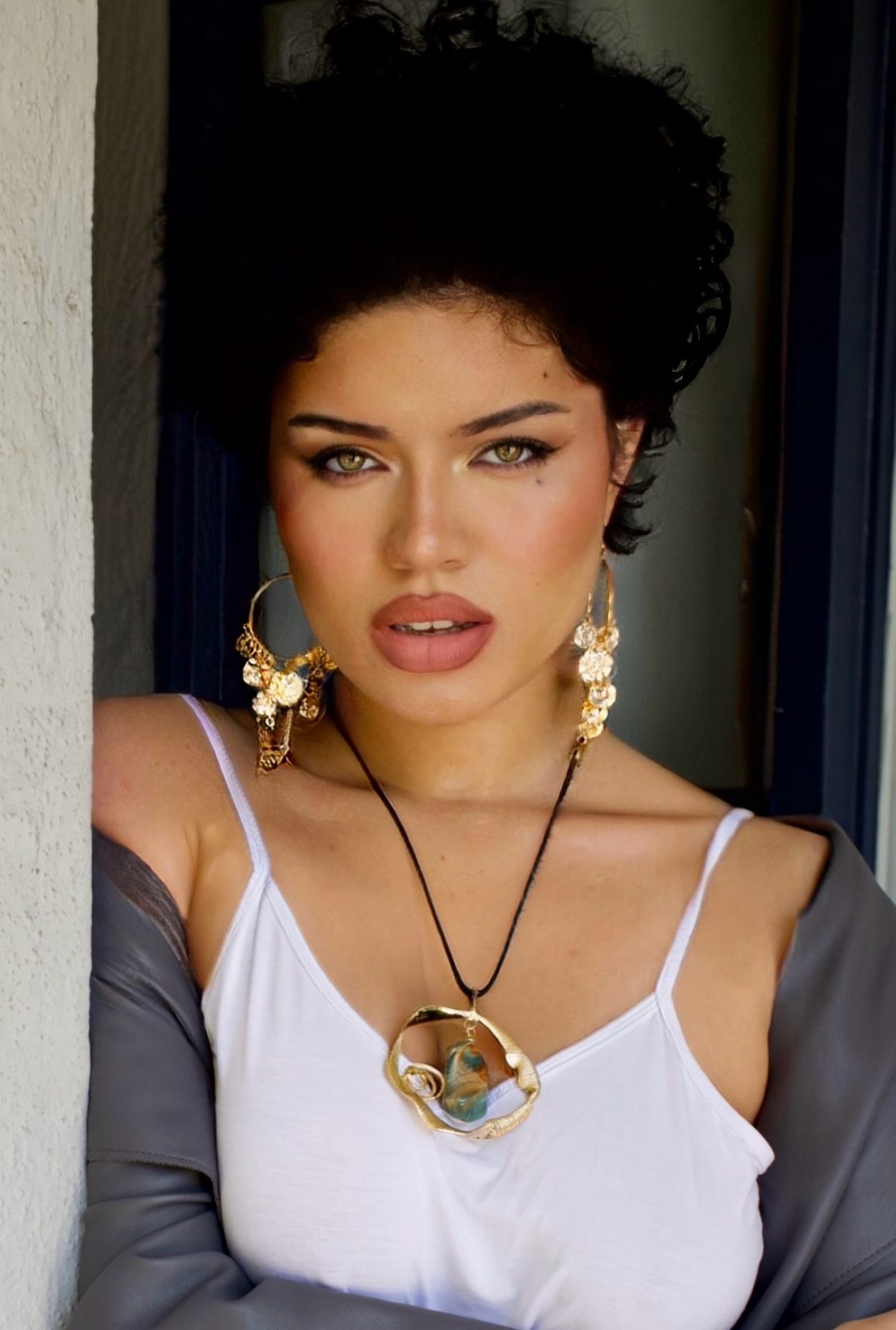
"We probably have a folder full of Spike Lee joints in the hard drive," Aiyana-Lee says of the 10 drafts she made for the film's title track.
Aiyana-Lee’s collaboration with Spike Lee began when she caught his attention on Instagram. Ahead of the A24/Apple film’s August 15 theatrical release, the singer tells Marie Claire that she was in “complete disbelief” when the auteur filmmaker slid into her DMs. “I had to check it a few times to make sure I wasn't tripping. My jaw dropped to the floor. I got up out of my bed. It was like 6:00 in the morning, and I woke my mom up and said, 'Girl, I think Spike Lee just DMed me.'”
Her title track on the film’s soundtrack is a joyous, gospel-tinged ode to resilience, making for the perfect coda to the genre-bending neo-noir about art versus commerce in a creative industry. While writing the song, the singer connected with the film’s “hyper-realistic” portrayal of the cutthroat music industry as it tries to adapt to the changing times. From moving to the U.S. at the age of 15 with just a karaoke mic and a dream, to building an online platform with over a million followers, Aiyana-Lee hopes her breakout moment can lend to the song’s message: “You can go from being at your lowest to reaching your highest potential.”
With Highest 2 Lowest in select theaters and the soundtrack out now, Aiyana-Lee chats with Marie Claire about sharing her first-ever movie scene with Washington, working closely with Lee, and how her family is integral to her music.
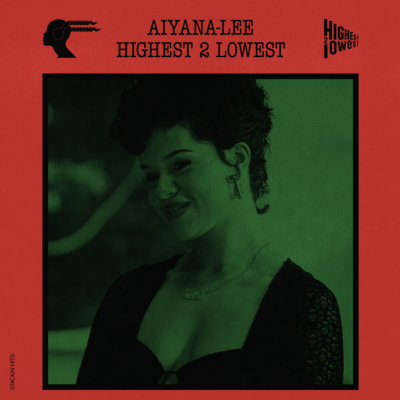
Aiyana-Lee on the artwork for the title track, "Highest 2 Lowest."
MC: Had you already read the film’s script when you were working on the title track? Did you know that it would be this triumphant final scene as you wrote the lyrics?
Get exclusive access to fashion and beauty trends, hot-off-the-press celebrity news, and more.
AL: For sure. It's funny because we probably wrote 10 songs before we got to this one. We have a folder full of Spike Lee joints on the hard drive, but it was such a great collaboration. Spike was super involved. He would call me every single day, and we would go back and forth on how we can get the best vibe for that moment, because it is such a big moment in the movie. He really knew what he wanted people to feel when they saw it and heard it, so we definitely went through a process of making sure that the energy fit for that moment. Everything that the characters go through and the vibe of the entire movie inspired having that 'crescendo,' as Spike would call it, moment at the end of the film with this song.
MC: What was it like when you got onto set to film the scene with Denzel Washington?
AL: I mean, it's Denzel! You know what I'm saying? I was super nervous beforehand, because you never know what you're going to get, and you're always afraid to meet your idols. But in this case, Denzel surpassed my expectations—firstly as a human being, let alone an actor. He was so welcoming, such a joy to be on set with, so electrifying to watch him in his element. I've never seen anything like it. [He] and Spike really made me feel so comfortable and so seen. They really encouraged me and believed in me, and took a chance.
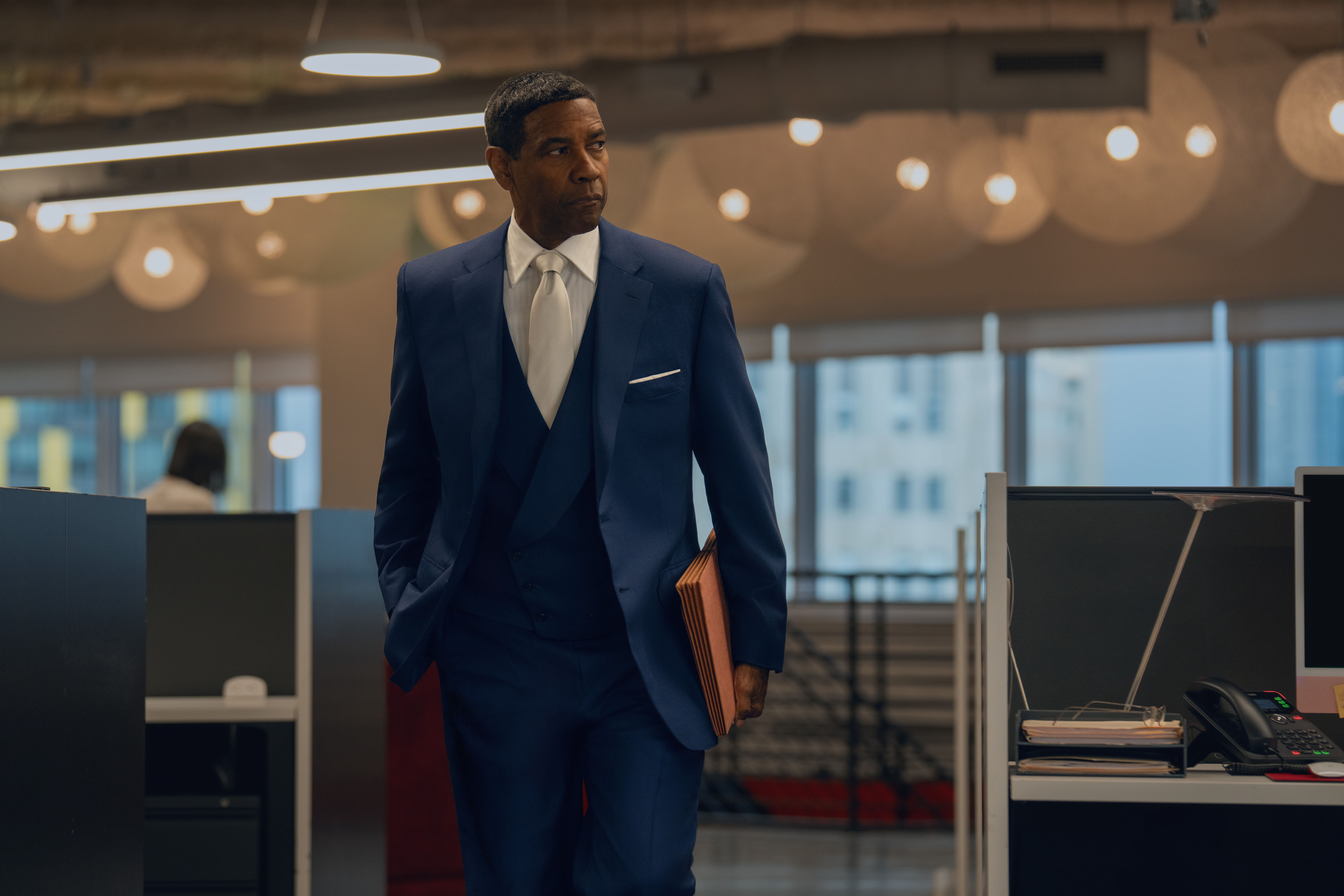
Denzel Washington plays music mogul David King in Highest 2 Lowest.
MC: You share a lot of similarities with your character Sula, both musically and in your career trajectory. What was it like balancing playing someone so similar to you in real life?
AL: Spike has such a great mind and really knows what's going to fit for who and how it's going to work. In this scene, I felt like I had to be as authentic as I possibly could and stay as true to myself as I could, because I'd been through a similar situation, if not the exact same situation that this scene portrays in my own life—to the point where I was like, 'I'm having a bit of déjà vu.' It felt so close to home, and it was a joy to be able to bring myself to this character.
MC: You have a lot of songs like “My idols lied to me” and “Table for Three” that sound like they’re meant to be on a film soundtrack. What draws you to that style of music?
AL: I've always been drawn to things that feel cinematic and theatrical because I'm a very big persona in my own life, and I like to reflect it in my music. I definitely feel a comfort in that raw storytelling element. Storytelling in every form has always been the goal, whether it's acting or writing books or writing music.
MC: Your mother, Daciana-Nicole Anderson, is your creative partner and co-writer on the title track. What's it like working with her and having your family be involved in your singing career?
AL: It's amazing. She taught me everything I know when it comes to writing. We collab so much and so often, and I feel like we're literally the same person in two different fonts, so it's so easy to work together. Even on this song, I really was like, 'I can't play the piano, bro. Can you help me come up with some chords just for writing purposes?' She's been able to co-write so many songs with me on my own projects as well, and protect me from a lot of the crazy stuff that goes down in the industry. [She’s been] a guiding light for me, and she inspires me to push myself, not settle for things that are mediocre, and surpass what's accepted to pursue something that creates legacy. Without her, I don't know who I would've turned out to be.
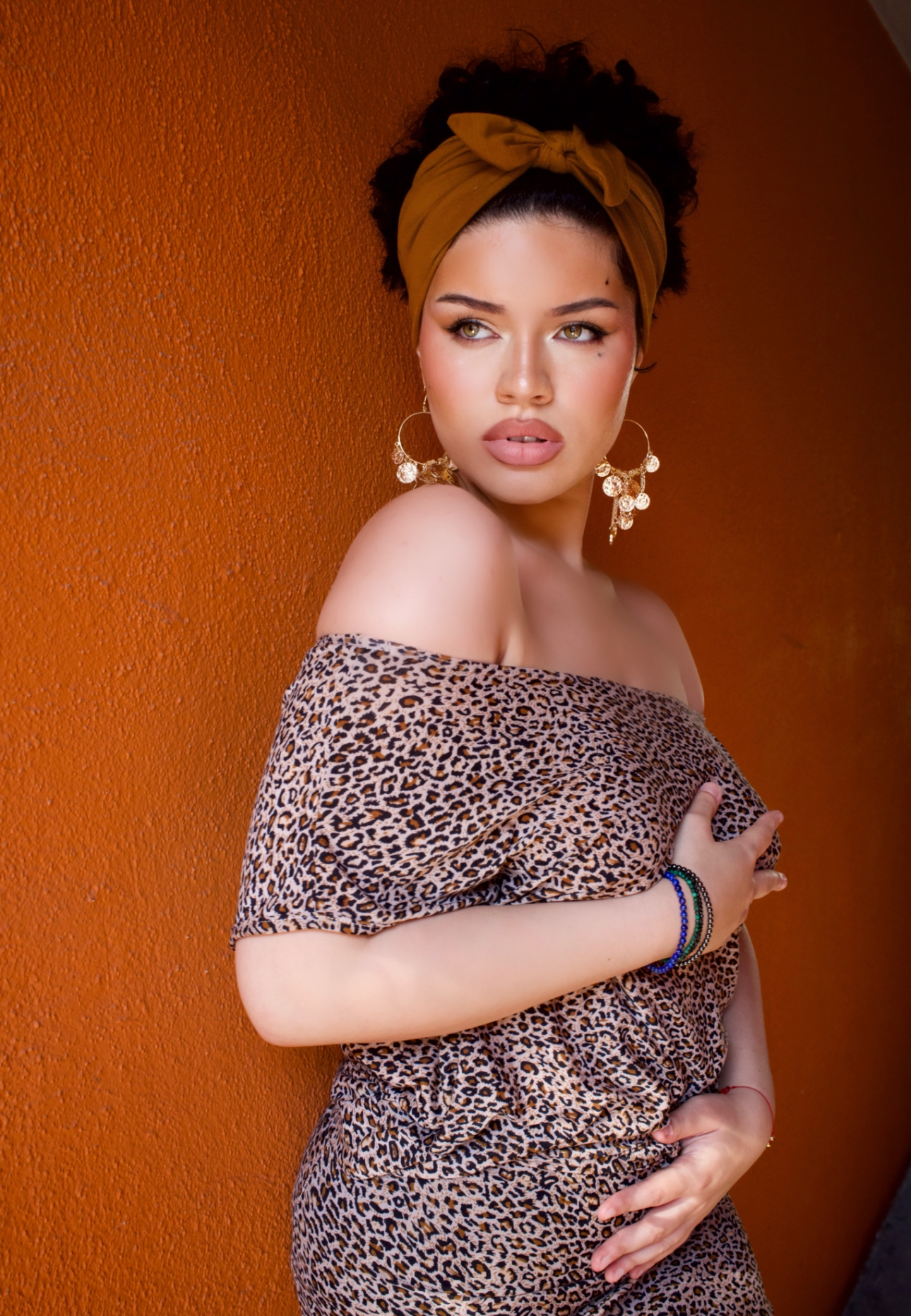
"I've always been drawn to things that feel cinematic and theatrical because I'm a very big persona in my own life, and I like to reflect it in my music," says Aiyana-Lee.
MC: Who were your musical inspirations growing up?
AL: Because I grew up around my mom—who has always been a songwriter and an incredible one—I got to experience all kinds of music, from The Temptations with my uncle being David Ruffin to Christina Aguilera, who was off the charts, going crazy. I love Whitney [Houston], Mariah [Carey], Céline [Dion]. I've always enjoyed all the classic female vocalists. I love Michael Jackson. To me, he's the best artist in the world, the greatest that will ever be and has ever been. I think growing up around different types of music has helped me craft and pave my own way.
MC: You often discuss your mental health and your come-up as a musician on social media. What makes you want to be so open about your personal life rather than creating a separation?
AL: To me, it's one and the same. I wanted to be almost the quote, 'Be the change you wish to see in the world.' I saw so many different artists blow up, but I never really understood the story or got to see the step-by-step. You can compare yourself to so many different people online, but then you degrade yourself to a degree, thinking that they don't go through the same struggles you do. I never wanted to be that. I wanted people to see the grit of it all and be part of that daily journey and struggle, because if someone can see my journey and be inspired and think, ‘You know what, maybe I can do it as well,’ then that's a job done.
MC: What do you hope that both the general audience and aspiring musicians feel after they watch your final scene?
AL: I hope the takeaway is that you can go from being at your lowest to reaching your highest potential. If you stick through the times when you're broke, the times when you have nothing, and still see that bigger picture and vision despite whoever doubts you and tries to make you feel smaller than what you are. That's really what the song is saying as well: If a person can go through all that and still make it on top, then maybe I can do it as well.
This interview has been edited and condensed for clarity.
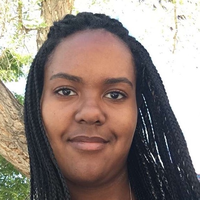
Quinci LeGardye is a Culture Writer at Marie Claire. She currently lives in her hometown of Los Angeles after periods living in NYC and Albuquerque, where she earned a Bachelor’s degree in English and Psychology from The University of New Mexico. In 2021, she joined Marie Claire as a contributor, becoming a full-time writer for the brand in 2024. She contributes day-to-day-content covering television, movies, books, and pop culture in general. She has also written features, profiles, recaps, personal essays, and cultural criticism for outlets including Harper’s Bazaar, Elle, HuffPost, Teen Vogue, Vulture, The A.V. Club, Catapult, and others. When she isn't writing or checking Twitter way too often, you can find her watching the latest K-drama, or giving a concert performance in her car.